|
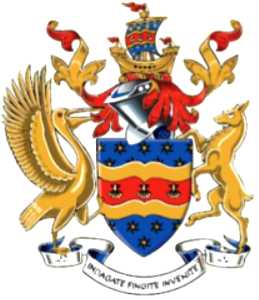
Plymouth University is a public university in
one of our favourite (fond memories of diving) locations in the South West of England, with over 28,600 students and is
the 10th largest in the United Kingdom by total number of students (including the
Open University). It has almost 2,900 staff making it one of the largest employers in the south
west. The main campus is in the Devon city of Plymouth, but the university has campuses and affiliated colleges all over
South West England.
Whilst the University has been known as Plymouth University since June 2011 as a result of a rebrand, the formal name and legal title of the university remains "University of Plymouth".
SCIENCE
& ENVIRONMENT
This faculty is home to the School of Biomedical and Biological Sciences, the School of Computing and Mathematics, the School of Geography, Earth and Environmental Studies, and the School of Marine Sciences and Engineering.
The university provides professional diving qualifications on a number of its courses, the only university in the country to do so. The university's
diving centre is based next to Queen Anne's Battery Marina and has a full-time team of instructors and dedicated boats and
equipment.
In October 2005, The Sun newspaper voted the University as having the most bizarre degree course in the country, the BSc (Hons) in
Surf Science & Technology. Commonly known as "surfing", this course is actually centred on coastal/ocean sciences, surfing equipment/clothing design and surfing-related business, which has its popularity increased by the geographical location of the University.
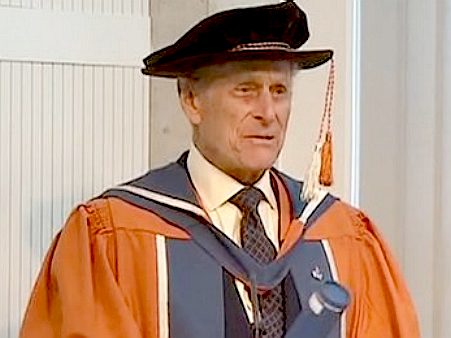
Prince
Philip, Duke of Edinburgh (born Prince Philip of Greece and
Denmark on 10 June 1921) is the husband of
Queen Elizabeth
II. He is the longest-serving, oldest-ever spouse of a reigning British monarch, and the longest-lived male member of the British royal family.
A member of the House of Schleswig-Holstein-Sonderburg-Glücksburg, Prince Philip was born in Greece into the Greek and Danish royal families, but his family was exiled from Greece when he was a baby. After being educated in France, England, Germany, and Scotland, he joined the British
Royal Navy in 1939, at the age of 18. From July 1939, he began corresponding with the 13-year-old Princess Elizabeth (his third cousin through Queen Victoria and the elder daughter and heir presumptive of King George VI) whom he had first met in 1934. During the Second World War he served with the
Mediterranean and
Pacific fleets.
After the war, Philip was granted permission by George VI to marry Elizabeth. Before the official announcement of their engagement, he abandoned his Greek and Danish royal titles, converted from Greek Orthodoxy to Anglicanism, and became a naturalised British subject, adopting the surname
Mountbatten, from his maternal grandparents. After an engagement of five months, as Lieutenant Philip
Mountbatten, he married Elizabeth on 20 November 1947. Just before the marriage, the King granted him the style of His Royal Highness and the title Duke of Edinburgh. Philip left active service, having reached the rank of commander, when Elizabeth became Queen in 1952. His wife made him a prince of the United Kingdom in 1957.
30 Oct 2012 BBC NEWs - DUKE OF EDINBURGH OPENS WAVE TANK
The Duke of Edinburgh has opened what is thought to be the UK's most sophisticated wave energy
testing tank at
Plymouth University.
The £19m Marine Building heralds a "new dawn" for renewable energy in the region, said the university.
The duke also unveiled a computer-operated ship simulator used to train future vessel captains.
He has also been awarded an Honorary Doctorate of Marine Science by the university.
The doctorate was awarded to "pay tribute to his distinguished and decorated career" in the Royal Navy.
'Technological breakthroughs'
On the ground floor of the Marine Building, engineers will be able to test devices using waves, currents and
wind.
The second floor has the simulator to enable students to pilot vessels from super tankers to yachts in ports around the world.
There is also a business support centre for wave energy firms.
Prof Wendy Purcell, the university's vice-chancellor, said: "We are heralding a new dawn for the city, the region and the marine renewable sector, who will be able to use the building's research and development facilities to catalyse technological breakthroughs."
The opening of the Marine Building follows the announcement on Monday of what could be the first wave energy machine for Wave Hub, a grid-connected test site about 10 miles off the coast at Hayle in
Cornwall.
Last year another wave energy testing site was announced in Falmouth Bay in Cornwall.
Falmouth Bay Testing Site (Fabtest) will enable developers to test wave energy devices prior to linking up to Wave Hub.
PERFORMING
ARTS
This faculty is host to the School of Architecture, Design and Environment, School of
Art & Media and the School of Humanities and Performing Arts. Arts subjects are usually taught in the Roland Levinsky building and the Scott building, a 19th-century building located next to Roland Levinsky which was modernised externally in 2008 to keep to the university's current design. The faculty offers degrees in Architecture, English, History, Art History, 3D Design, Fine Art,
Music, Photography, Media Arts, Theatre & Performance and
Dance Theatre. Advanced research is available across the disciplines in all three Schools, including via the innovative international Planetary Collegium in new media art.
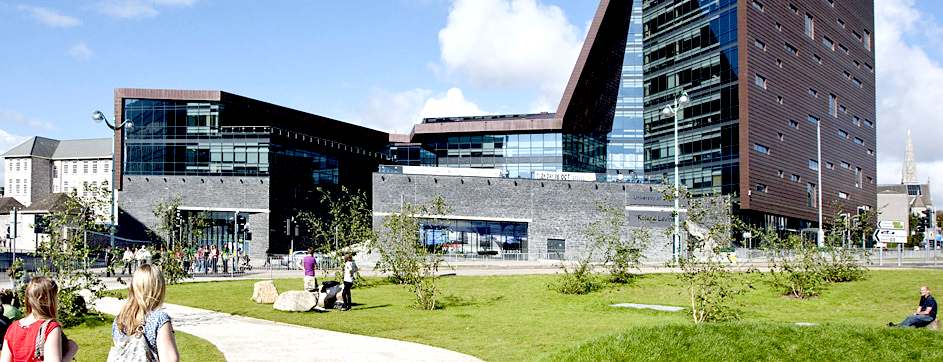
ROLAND
LEVINSKY
The Roland Levinsky Building, designed by architects Henning Larsen with Building Design Partnership, is clad with copper sheets in a seamed-cladding technique, is nine storeys high and has 13,000 square metres (140,000 sq ft) of floor space. The Faculty of Arts, previously based in Exmouth and Exeter moved here in August 2007. The building contains two large lecture theatres, the Jill Craigie Cinema, used by the film students to display their films and for showing of films to the public; three performance rehearsal studios; digital media suites; and a public art gallery which displays work by local artists groups, students and famous artists.
MUSICAL
COMPUTERS
The Interdisciplinary Centre for Computer Music Research team
(ICCMR), led by Eduardo Reck Miranda, is formed of scholars from different backgrounds and from different departments across the University: School of
Computing, Communications and Electronics, Faculty of Education, Music, and the School of Art and Media.
The ICCMR comprises four interconnected research teams. The Evolutionary Music Team is concerned with the problem of musical evolution. Research themes include origins of emotions, ontogenesis, evolution of grammars and generative performance. The Music and the
Brain Team is mostly concerned with the problem of representation of musical experience. Research is focusing on active perception, role of timbre in musical expectancies, development of experience-dependent abstractions and
brain–computer interfaces. This team overlaps with the Auditory Group at the Centre for Theoretical and Computational Neuroscience led by Dr Sue Denham.
The Music Technology Team is concerned with the conversion of basic scientific research into practical music technology. Projects include tools for composition and sound design, music
controllers, sound synthesis algorithms and musical robotics. The Musical Practice Team is concerned with musical practices using new technology and contemporary music. Projects include music in the community, music facilitation for disability and sonic arts. The team works in close collaboration with Peninsula Arts.
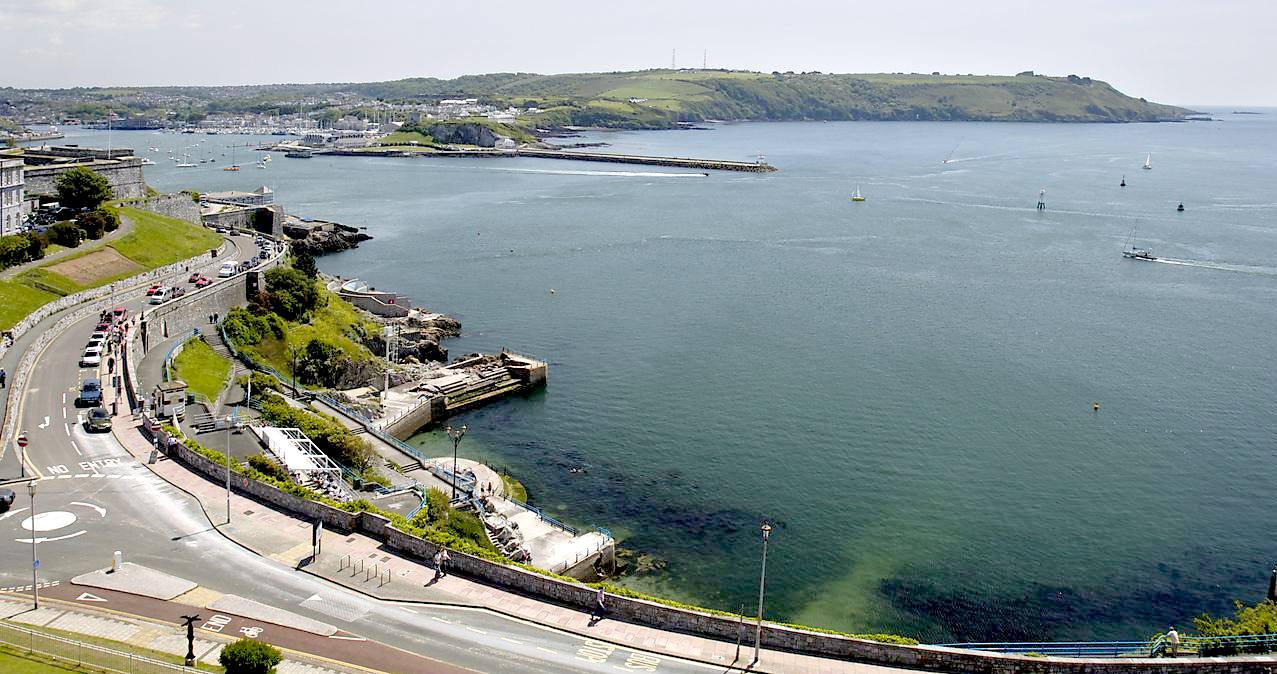
INTERNATIONAL
RANKINGS
On the basis of the results of the 2008 RAE Plymouth joined the top 50 UK universities, showing the greatest improvement in the UK in research performance since the previous RAE, in 2001. Overall rankings of UK universities by the 2008 RAE can be found here. Information about how RAE scores are calculated and the full results for 2008 and earlier Research Assessment Exercises, can be found here.
In The Times and Sunday Times University League Tables 2015, Plymouth University's world ranking was listed as 701st= and 701+ in QS World University Rankings 2014/15. Times Higher Education ranked Plymouth between 276th and 300th in its World University Rankings 2014–15, and ranked it as equal 42nd in a list of the world 100 best universities under 50 years old, in May 2014.
MECHANICAL,
MARINE and MATERIALS ENGINEERING COURSES 2014/5
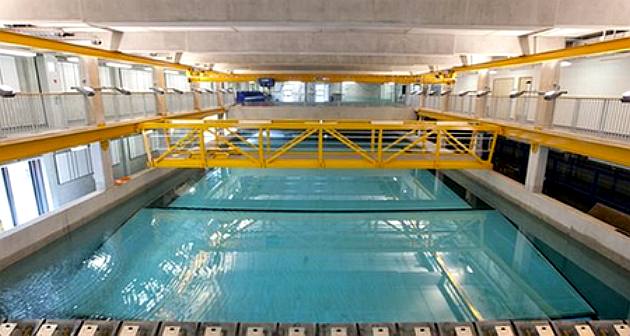
ROBOTICS
COURSES
EVENTS
TEAM
The
University's Stakeholder Engagement Events Team is responsible for delivering both University and external events.
Plymouth Uni works in partnership with stakeholders to oversee around 300 events each year working locally, nationally and internationally to help enhance the University’s reputation, support relationships and generate income.
These
events include open days, internal and external conferences, community events, showcase dinners, royal visits, University exams, public lectures, networking functions and marquee events including the award winning graduation ceremonies on Plymouth Hoe, attended by around 25,000 people each year.
The
broad range of facilities includes 15 meeting rooms, three video conferencing suites, 17 large state of the art lecture theatres with seating capacities from 90-280 as well as versatile exhibition venues, galleries and several large open atria spaces all of which are fully accessible and can be complimented by high-quality catering and leading-edge audio-visual technology.

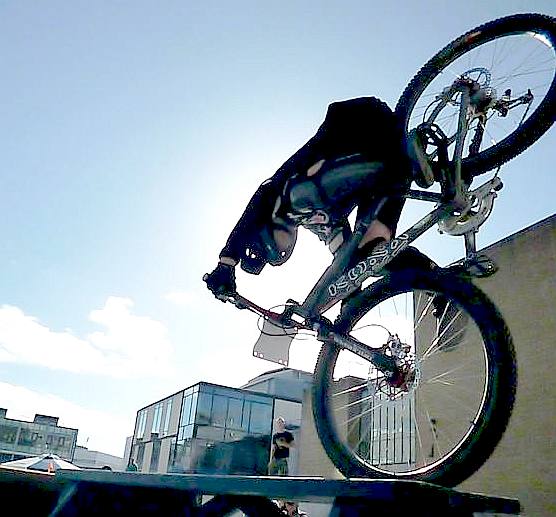
The Urban Downhill
spectacular at Plymouth Uni blew any clichéd preconceptions of students as being duff
event organizers out of the water. The course was an evolution of the previous two events, with the brave addition of a huge scaffold soaring into into the main square, ending with a
two-metre drop onto a stubby ramp and then yet more concrete to snort - as many seemed addicted to.
The crowd was large and strangely quiet at times despite the efforts of the Master of Ceremonies and music courtesy of Monster Energy. With riders flying past every few seconds, the racing and sense of imminent stackage was just too mesmerising for distractions like shouting, or even breathing.
The short coruse was completed in a winning time of just 36 seconds. It zig-zagged right through the campus down several sets of tricky steps, with some flowy corners going into narrow gaps, between handrails and down yet more steps. Death alley to most, the spice of life to others.
Local architecture was put to good use with the stacks of railway sleepers used as walls towards the end making a tricky alternative to the final stages. Slick tyres made a lot of sense, as did good body armour and a total lack of any concept of what high speed, steel and concrete can do to human bodies. Otherwise of course, caution would mean no competitors.
EVENT
CONTACTS, HIRE & CORPORATE ENQUIRIES
events@plymouth.ac.uk
+44 1752 586005
conference@plymouth.ac.uk
+44 1752 588992
http://twitter.com/@PlymUniConf
https://www.facebook.com/EventsWithPlymouthUniversity
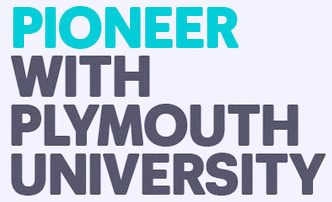
FUNDING
SOLUTIONS
Plymouth
Uni can help your business explore a range of funding
sources and opportunities to enable your organisation to
grow and develop, whilst accessing high level research
expertise from Plymouth University.
Securing
funding is not always easy. By working with Plymouth
University they aim to help your business access funding
from a range of sources and their experts will help to
identify the most appropriate opportunities.
Current
funding solutions include:
CASE
Awards – Cooperative Awards in Science and Engineering are
used to supplement the support of PhD students working on
projects jointly devised and supervised by members of academic
staff and an industrial partner.
GAIN
Growth Fund + (GGF+) - Following
the successful bidding to BIS by the Plymouth and South West
City Deal Partners, another tranche of grant money has been
secured to assist businesses across the South West to grow and
create new jobs for the people of Devon.
Innovation
Vouchers - funding of £3,000 - £10,000 from
Universities South West for micro, start up and SMEs to
encourage engagement with a knowledge supplier.
Knowledge
Transfer Partnerships (KTP) – Plymouth University has an
outstanding record securing funding for and delivering KTPs
across a broad range of business sectors. Part funded by
Government, a KTP involves the formation of a Partnership
between a business, an academic institution along with the
appointment of a recently qualified graduate, who works jointly
supervised within the business to facilitate the transfer of
knowledge and the embedding of new capabilities.
Research
for the Benefit of Small to Medium Sized Enterprises (SMEs)
- this European funding source supports SMEs by contracting
research and development and project management to transform
great ideas into reality. Ideas can be in nearly any sector or
market with the only restrictions being that the work must be
technically challenging, deliver a game changing solution for
the business and require external skills and capacity in its
delivery.
The
Plymouth University & Western Morning News Growth Fund (PWGF) -
a grant investment fund, financed by the Department for Business
Innovation and Skills, through their Regional Growth Fund
initiative. In partnership with the Western Morning News the
University secured £3.9 million to invest in businesses to
enable them to create new jobs or safeguard jobs at risk.
As
funding opportunities are subject to change contact
a member of the team for a comprehensive list of current
funding opportunities.
Visit the GAIN
website to find out more about other funding opportunities
in the South West region.
What
are the benefits to me/my organisation?
Securing
funding is not always easy. By working with Plymouth
University, we will aim to help your business access funding
from a range of sources and our experts will help to identify
the most appropriate opportunities.
How
do I find out more?
You
can stay up to date with Enterprise Solutions news by becoming
a fan on Facebook,
following the university on Twitter
or joining their LinkedIn
group.
|
FREE
SOFTWARE - SHIPSHAPE
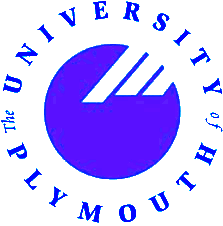
CONTACTS
Plymouth University
Drake Circus, Plymouth
Devon, PL4 8AA, United Kingdom
Tel: +44 1752 600600
Web:
https://www.plymouth.ac.uk/
MARINE
ACADEMIC INSTITUTIONS A-Z
Australian
Maritime - Geneve
- Hawaii
Renewable - NERC
- Newcastle
Naval
NOC
Oceanographic - Plymouth - Portsmouth
- Seoul
Naval - SOTON
Strathclyde
Marine - Sussex
- TU
Delft - USP South
Pacific - Webb
Institute

LINKS
& REFERENCE
BBC
news UK devon
UPSU
Wikipedia
Plymouth_University
http://twitter.com/@PlymUniConf
https://www.facebook.com/EventsWithPlymouthUniversity
http://www.bbc.co.uk/news/uk-england-devon-20135074
https://www.plymouth.ac.uk/
http://www.upsu.com/
http://en.wikipedia.org/wiki/Plymouth_University
http://www.open.ac.uk/
Wide
Open Mag Plymouth charity urban downhill 2012
University
Which Plymouth University
http://wideopenmag.co.uk/news/16097/plymouth-charity-urban-downhill-2012
http://university.which.co.uk/plymouth-university-p60
http://www.southampton.ac.uk/
Wikipedia
University_of_Southampton
Wolfson_Unit_Marine_Technology
http://www.southampton.ac.uk/
http://en.wikipedia.org/wiki/University_of_Southampton
http://www.wumtia.soton.ac.uk/
Plymouth
University
Portsmouth
University
http://auvac.org/community-information/community-news/view/935
http://noc.ac.uk/
http://noc.ac.uk/sbri
Oceanology
International OI China 2014 Conference Programme Remote Technology
Underwater Kevin Forshaw
NOC
robot vehicles launched from Plymouth-on fish tracking mission
NOC
research at sea mars
http://www.asvglobal.com/latest-news/first-sea-lord-opens-new-asv-facility
http://noc.ac.uk/news/robot-vehicles-launched-from-plymouth-morning-fish-tracking-mission
http://noc.ac.uk/research-at-sea/nmfss/mars
http://www.msubs.com/
http://www.strath.ac.uk/na-me/
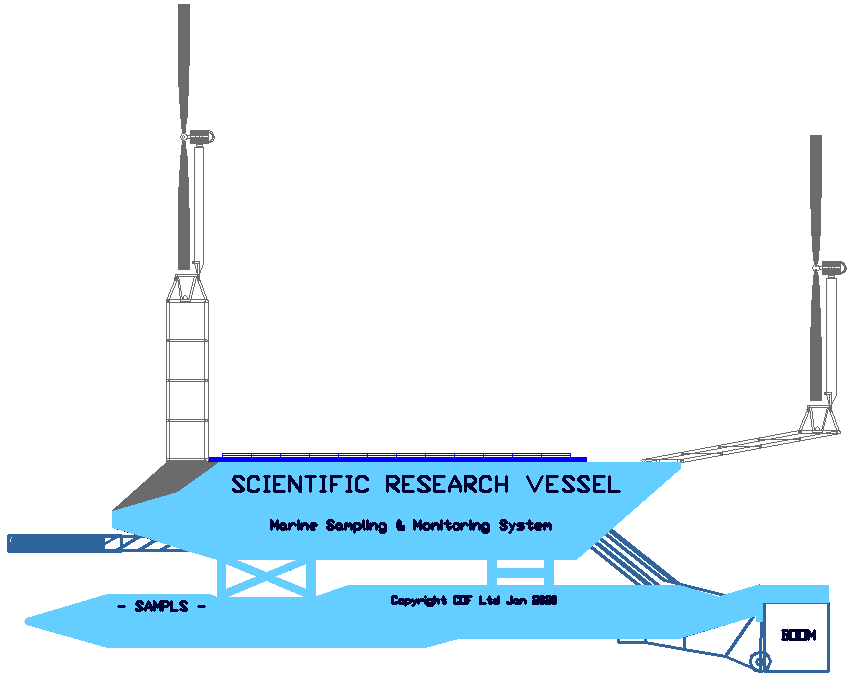
PATENT
PENDING - This advanced marine sampling research vessel is solar and
wind powered, also incorporating satellite navigation and data sharing for
artificially intelligent monitoring of the ocean environment. It is a
concept vessel that does not yet exist, though funding applications for
development in 2020-2022 are in the pipeline.
|










